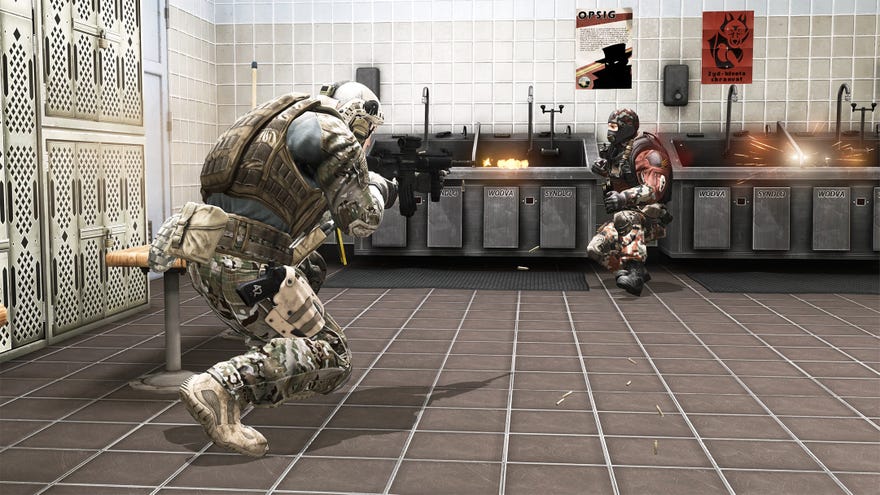The video game the US Army made for recruitment is shutting down
America's Army: Proving Grounds ends official support in May
In 1999, the US Army reasoned that if children enjoyed shooting people in video games, perhaps they could be encouraged to later shoot people in real life too. Thus began America's Army, a series of tactical first-person shooters funded and released for free by the Army as a recruitment tool. But the series has seemingly petered out and now they're preparing to end support for the latest, America's Army: Proving Grounds. Official servers will shut down in May, though offline bits and privately owned servers will remain playable.
In a forum post titled "America's Army: Proving Grounds: Mission Success, Time to Withdraw" (presumably without irony) the developers announced that support will end and official servers will shut down on the 5th of May, 2022.
"Privately owned servers, the Mission Editor, and offline features are expected to function, but player stats will no longer be available. Official servers will be shut down," they explain. "User login, player stats, and other resources on the America's Army website will no longer be available."
That's for the PC version on Steam. The PlayStation version will be removed from the store and no longer available for download, though offline stuff should still work.
This might be the end for America's Army? In 2018, a member of the dev team commented that they had started work on a new game, but we've not heard much since and they've announced no replacement. The Army previously chained releases. Along with the main series which debuted on PC in 2002, they released heaps of spin-offs, including console games made with Ubisoft. I wonder if the Army are done with making their own games to recruit, now they're happily using other people's games.
The military have increasingly been using livestreaming and esports in their recruitment arsenal. This isn't wholly new; South Korean StarCraft team Air Force Ace formed way back in 2006 for players undergoing their mandatory military service, with members over the years including the legendary Lim "BoxeR" Yo Hwan. But the US Army, Navy, and Air Force are now using Twitch and esports teams for recruitment, especially with many branches missing recruitment goals in recent years and the pandemic hindering in-person recruiting on top.
"There are certain young people that game that we can't actively recruit because of their age," Lt. Col. Kirk Duncan of the US Army esports team told Business Insider in 2020. "But if we can build that interest in them when they are young, when it comes time for them to make decisions about what they want to do with their future, we hope that their experience interacting with the esports team will plant a seed that, hey, maybe I can be a soldier."
Sentiments like that have, unsurprisingly, not gone down super-great with everyone. Like America's Army before it, the military's use of Twitch to influence children has been the subject of much criticism. They did not help the image of their recruitment tactic when they started banning people in Twitch chat who raised military scandals including US war crimes.
Some observed that US government departments trying to shut down criticism on social media might constitute a first amendment violation. The Army soon stopped streaming for a month, and when they returned they removed the bans. The Army also got in trouble with Twitch for running misleading prize giveaways, where trying to win an expensive Xbox controller directed people to recruitment forms.
America's Army itself hosted protests too, most famously Joseph DeLappe's dead-in-iraq project. Between 2006 and 2011, the performance artist visited America's Army servers to type out in chat the name, age, service branch, and date of death for all 4484 service people who died during the conflict up until the official withdrawl.
All this is but the tip of the military-industrial iceberg in video games, with other entanglement including using military advisers, deals with arms manufacturers, the esports accepting sponsorship from the military, and so much more. And it's not just the US military, obvs.


